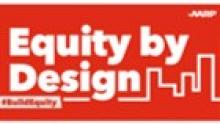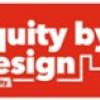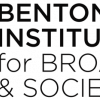0
Case study
Community:
Apr 18, 2024
Households Faced Continued Pressure from High Food Prices and Fewer Supports
Authored by: Poonam Gupta, Elaine Waxman, Michael Karpman, Baris Tezel, and Dulce Gonzalez
Topics: Advocacy, Family engagement, Food insecurity, Health, Healthy homes, Homelessness, Housing
 Shared by Molli Caite Hughes
Shared by Molli Caite Hughes
Molli Caite Hughes posted a
on Apr 23, 2024
Poonam Gupta, Elaine Waxman, Michael Karpman, Baris Tezel, and Dulce Gonzalez
Households Faced Continued Pressure from High Food Prices and Fewer Supports
0
Communications
Community:
Apr 18, 2024
Authored by:
Topics: Low-income
 Shared by Destiny Clark
Shared by Destiny Clark
Destiny Clark posted a
on Apr 18, 2024
0
Case study
Community:
Apr 2, 2024
Dual language education is an educational model where instruction is provided to children in two languages, usually English and a partner language. Robust bodies of research find that dual language education is the gold standard for emergent bilingual children. However, there is limited consensus on what high-quality dual language education looks like for emergent bilinguals who are infants/toddlers, preschoolers, and students in the early grades.
In this new report, The Children’s Equity Project, in partnership with The Century Foundation and dozens of research and practitioner partners, operationalizes high-quality dual language education for young emergent bilinguals. We use a seven-part comprehensive framework that includes programmatic structures, curriculum and assessment, language allocation, family leadership and engagement, and more.
This framework is informed by an exhaustive research synthesis of 170 studies, case studies of 11 dual language programs spanning infancy through the elementary years, and input from dozens of researchers, policy leaders, and practitioners. This report helps move the field forward toward the goal of ensuring all children- beginning with emergent bilingual children- have the opportunity to access high quality, dual language education throughout their educational trajectory.
Authored by:
Topics: Advocacy
 Shared by Molli Caite Hughes
Shared by Molli Caite Hughes
Molli Caite Hughes posted a
on Apr 2, 2024
Dual language education is an educational model where instruction is provided to children in two languages, usually English and a partner language. Robust bodies of research find that dual language education is the gold standard for emergent bilingual children.
0
Interactive
Community:
May 1, 2023
Play is not only beneficial but essential for people of all ages. Today, there is increasing interest in the benefits of not only play itself, but specifically people from younger and older generations playing together. The built environment in our communities plays a critical role in facilitating this intergenerational engagement and play. Approaches such as Intergenerational Contact Zones (ICZs) introduce strategies for promoting social inclusion and belonging, employing novel ways of planning and designing public spaces to create intergenerationally enriched environments that provide mutual benefits as well as counteract ageism and age-related stereotypes.
Authored by: Stephanie Firestone and Julia Glassman for AARP Equity by Design- Principles in Action
Topics: Community development, Dual-generation, Exercise, Health, Seniors, Youth
 Shared by Sandra Ware
Shared by Sandra Ware
Sandra Ware posted a
on Jun 8, 2023
Stephanie Firestone and Julia Glassman for AARP Equity by Design- Principles in Action
Play is not only beneficial but essential for people of all ages. Today, there is increasing interest in the benefits of not only play itself, but specifically people from younger and older generations playing together.
0
Interactive
Community:
Jun 1, 2023
Virtual
Authored by: Benton Institute for Broadband and Society
Topics: Broadband, Data sharing, Low-income
 Shared by Sandra Ware
Shared by Sandra Ware
Sandra Ware posted a
on Jun 1, 2023
Benton Institute for Broadband and Society
0
Communications
Community:
Apr 3, 2023
ASTHO comes to our health agencies and partners saddened by our country's recent mass shooting. We mourn the losses of life from firearm violence as our families, schools, and communities continue to be impacted. ASTHO supports you now more than ever. The epidemic of firearm-related injury and death in the United States has become a critical public health and safety concern that affects everyone.
Authored by: Caitlin Langhorne & Tanya Baker for ASTHO
Topics: Community development, Criminal justice, Health, Mental health, Research
 Shared by Sandra Ware
Shared by Sandra Ware
Sandra Ware posted a
on May 25, 2023
Caitlin Langhorne & Tanya Baker for ASTHO
ASTHO comes to our health agencies and partners saddened by our country's recent mass shooting. We mourn the losses of life from firearm violence as our families, schools, and communities continue to be impacted. ASTHO supports you now more than ever.
0
Interactive
Community:
May 24, 2023
Ever wondered what health centers are close to your public housing property? Check out this map to learn more.
Authored by:
Topics: Health, Housing
 Shared by Camille Anoll-Hunter
Shared by Camille Anoll-Hunter
Camille Anoll-Hunter posted a
on May 24, 2023
Ever wondered what health centers are close to your public housing property? Check out this map to learn more.
0
Interactive
Community:
May 2, 2023
Sesame Workshop and Quest Diagnostics as part of the Quest for Health Equity (Q4HE) initiative
are working together to create a bilingual (English and Spanish), multimedia program that helps all
families build healthy habits as a foundation for lifelong well-being. This effort addresses systemic
barriers to health care and helps improve access to the critical resources every family needs to stay
well. The latest materials showcase how there are many ways to support families in being healthy
in both mind and body. The new resources include two videos and a digital storybook.
Below you’ll find sample social media copy to share these resources with your community. We
thank you for your commitment and support as we continue in our mission to help all children grow
smarter, stronger, and kinder.
Authored by: Sesame Street in Communities and Quest Diagnostics
Topics: Child welfare, dual-generation initiative, Early childhood, Family engagement, Health
 Shared by Sandra Ware
Shared by Sandra Ware
Sandra Ware posted a
on May 2, 2023
Sesame Street in Communities and Quest Diagnostics
Sesame Workshop and Quest Diagnostics as part of the Quest for Health Equity (Q4HE) initiative
are working together to create a bilingual (English and Spanish), multimedia program that helps all
families build healthy habits as a foundation for lifelong well-being.
0
Case study
Community:
Feb 9, 2023
The following are case studies of NYCHA energy efficiency decarbonization programs. More information about the New York City Housing Authority (NYCHA) various sustainability programs can be found in our Sustainability Agenda.
Authored by: NYCHA and CLPHA
Topics: Energy, Environmental Resiliency/Climate Change, Housing, Sustainability
 Shared by Sandra Ware
Shared by Sandra Ware
Sandra Ware posted a
on Feb 9, 2023
The following are case studies of NYCHA energy efficiency decarbonization programs. More information about the New York City Housing Authority (NYCHA) various sustainability programs can be found in our Sustainability Agenda.
0
Interactive
Community:
Jan 24, 2023
Join us for an interactive course that explores practical, strength-based ways providers and other caring community members can help support children and families affected by conflict, crisis, or other traumatic experiences. This course can be taken as the first steps of support for newcomer families in your community.
Authored by: Sesame Street Communities
Topics: Early childhood, Family engagement, Healthy homes, Immigrants, Mental health, Youth
 Shared by Sandra Ware
Shared by Sandra Ware
Sandra Ware posted a
on Jan 24, 2023
Sesame Street Communities
Join us for an interactive course that explores practical, strength-based ways providers and other caring community members can help support children and families affected by conflict, crisis, or other traumatic experiences.
0
Case study
Community:
Nov 29, 2022
Many older LGBTQ+/SGL people who pioneered coming out of the closet are now forced to go back
in. As their housing needs and preferences change with age, prejudice is still rampant. And under the
U.S. Fair Housing Act, gender identity and sexual orientation are not explicitly protected classes where
housing is concerned. Creating appropriate housing for LGBTQ+/SGL seniors must be informed by the
life experiences of older people in this community, which often include family rejection, mistreatment,
and even violence. This means increasing our cultural competence—from the terminology used, to the
design and management of housing developments that consider past traumas. This case study presents
innovative housing projects as well as guidance for developers on how to meet some of the unique
needs of this particular population.
Authored by: Stephanie Firestone and Julia Glassman for AARP Equity by Design- Principles in Action
Topics: Community development, Housing, Seniors
 Shared by Sandra Ware
Shared by Sandra Ware
Sandra Ware posted a
on Nov 29, 2022
Stephanie Firestone and Julia Glassman for AARP Equity by Design- Principles in Action
Many older LGBTQ+/SGL people who pioneered coming out of the closet are now forced to go back
in. As their housing needs and preferences change with age, prejudice is still rampant. And under the
U.S.
0
Communications
Community:
Nov 29, 2022
Social media tool kit to promote and advertise the December 6th Virtual Spotlight – LGBTQ+/SGL* – Affirming Housing for Older People event.
Authored by: Equity by Design- Principles in Action
Topics: Community development, Housing, Seniors
 Shared by Sandra Ware
Shared by Sandra Ware
Sandra Ware posted a
on Nov 29, 2022
Equity by Design- Principles in Action
Social media tool kit to promote and advertise the December 6th Virtual Spotlight – LGBTQ+/SGL* – Affirming Housing for Older People event.
0
Case study
Community:
Oct 25, 2022
Unsheltered homelessness is on the rise amid a systemic and widespread lack of affordable housing, supportive services, and livable wages. As the housing crisis worsens, homelessness has become increasingly visible and, as a result, increasingly dominant as a public concern.
Instead of addressing the issue’s root causes—a lack of housing and supportive services—many cities have leaned into punitive responses that criminalize homelessness, such as arresting people for sitting or sleeping in certain public places. But this approach is costly and ineffective. Police don’t solve homelessness, they only move it around—to other neighborhoods, jails, and emergency rooms—rather than connecting people with the housing and services they need.
What would it take to actually end homelessness for people living on the street? And how would that affect the time and resources police spend managing the problem without solving it? New data from a supportive housing program in Denver show what could happen when communities address the underlying causes of homelessness rather than continuing the status quo.
Authored by: Emily Peiffer for the Urban Institute's Housing Matters initiative
Topics: Criminal justice, Homelessness, Supportive housing
 Shared by Sandra Ware
Shared by Sandra Ware
Sandra Ware posted a
on Nov 1, 2022
Emily Peiffer for the Urban Institute's Housing Matters initiative
Unsheltered homelessness is on the rise amid a systemic and widespread lack of affordable housing, supportive services, and livable wages.
0
Communications
Community:
Oct 14, 2022
Medical debt is a critical challenge to Americans’ financial stability and well-being. People with medical debt are more likely to forgo needed medical care, have difficulty meeting basic needs, and face an increased risk of bankruptcy.
Recent Urban research shows there are great disparities in who carries the most medical debt. Adults who live in communities where the majority of the population are people of color are more likely to have medical debt in collections reported on their credit reports. In particular, Black adults are more likely to have difficulty paying for family medical expenses. These inequities reinforce the racial wealth gap and contribute to disparities in health outcomes.
Authored by: Miranda Santillo, Breno Braga, Fredric Blavin, Anuj Gangopadhyaya for The Urban Institute
Topics: Asset building, Dual-eligibles, Health, Legislation & Policy, Low-income, Medicaid / Medicare, Racial inequalities
 Shared by Sandra Ware
Shared by Sandra Ware
Sandra Ware posted a
on Oct 27, 2022
Miranda Santillo, Breno Braga, Fredric Blavin, Anuj Gangopadhyaya for The Urban Institute
Medical debt is a critical challenge to Americans’ financial stability and well-being.
0
Case study
Community:
Oct 25, 2022
According to UN-Habitat, the world needs to build 96,000 affordable homes every day to address the
global housing crisis by 2030. Yet, better utilizing existing housing stock—through options such as shared
housing—can make a significant dent in the need to build more housing. With college students often
challenged to find affordable housing and many older adults living alone in homes with spare bedrooms,
these two groups are increasingly benefitting from living together. Universities are often well-suited to
facilitate students living and learning with older adults in nearby communities. Intentionally fostering
intergenerational engagement through places and programs can reduce loneliness, mitigate ageist
stereotypes, and help both groups to thrive.
Authored by: Stephanie Firestone and Julia Glassman for AARP Equity by Design
Topics: Community development, dual-generation initiative, Funding, Health, Homelessness, Housing, Mental health, Seniors, Youth
 Shared by Sandra Ware
Shared by Sandra Ware
Sandra Ware posted a
on Oct 25, 2022
Stephanie Firestone and Julia Glassman for AARP Equity by Design
According to UN-Habitat, the world needs to build 96,000 affordable homes every day to address the
global housing crisis by 2030. Yet, better utilizing existing housing stock—through options such as shared
housing—can make a significant dent in the need to build more housing.
0
Case study
Community:
Aug 1, 2022
Created by the Older Americans Act in 1973, AAAs are part of the national Aging Network. AAAs are the local leaders that develop, coordinate, and deliver a wide range of home and community-based services. These services include information and referral/assistance, case management, home-delivered meals and meals in
congregate settings, in-home services, caregiver supports, transportation, evidence based health and wellness programs, long-term care ombudsman programs, and more. People who receive services provided by AAAs have improved health and well-being, helping them remain in their homes and thrive in the community.
Authored by: U.S Administration for Community Living
Topics: Disabilities, Food insecurity, Homelessness, Housing, Low-income, Seniors, Supportive housing
 Shared by Sandra Ware
Shared by Sandra Ware
Sandra Ware posted a
on Oct 18, 2022
U.S Administration for Community Living
Created by the Older Americans Act in 1973, AAAs are part of the national Aging Network. AAAs are the local leaders that develop, coordinate, and deliver a wide range of home and community-based services.
0
Case study
Community:
Aug 1, 2022
As an Area Agency on Aging (AAA), AgeSpan engages in innovative partnerships with housing providers through the Massachusetts Supportive Housing Program (MSHP). Working with property managers at designated local housing sites, AgeSpan places staff as resident service coordinators (RSCs). The RSCs deliberately build strong, trusting relationships with residents, offering a daily touchstone that greatly improves quality of life. When housing and services are coordinated, older adults and people with disabilities are
better able to live well in the community.
Authored by: U.S administration for Community Living
Topics: Disabilities, Food insecurity, Housing, Low-income, Seniors
 Shared by Sandra Ware
Shared by Sandra Ware
Sandra Ware posted a
on Oct 18, 2022
U.S administration for Community Living
As an Area Agency on Aging (AAA), AgeSpan engages in innovative partnerships with housing providers through the Massachusetts Supportive Housing Program (MSHP). Working with property managers at designated local housing sites, AgeSpan places staff as resident service coordinators (RSCs).
0
Communications
Community:
Aug 30, 2022
Join the Housing Is Working Group for webinars, member updates, and round table discussions! This resource provides the 2022-2023 Calendar of Events.
Authored by: Housing Is
Topics: CLPHA, Housing, Housing Is Working Group
 Shared by Camille Anoll-Hunter
Shared by Camille Anoll-Hunter
Camille Anoll-Hunter posted a
on Aug 30, 2022
Join the Housing Is Working Group for webinars, member updates, and round table discussions! This resource provides the 2022-2023 Calendar of Events.
0
Interactive
Community:
Jun 29, 2022
In 2020 we launched a dedicated effort to learn more about legal issues surrounding unaccompanied minors experiencing homelessness. This project was intended to guide both organizations’ ongoing work and advocacy and develop resources to help the field better prevent and end homelessness among minors.
This toolkit includes:
• Key issues and challenges for minors experiencing homelessness;
• Strategies and lessons learned from advocacy for state minor consent to services laws (including questions to consider);
• Legal issues and considerations relevant to host homes for minors;
• Working towards equity while serving minors;
• Child welfare and youth homelessness; and
• Additional legal and policy issues.
Authored by: National Network for Youth
Topics: Advocacy, Child welfare, Community development, Education, Foster care, Homelessness, Housing, Legislation & Policy, Racial inequalities, Research, Supportive housing, Sustainability, Youth
 Shared by Karina George
Shared by Karina George
Karina George posted a
on Jun 29, 2022
National Network for Youth
In 2020 we launched a dedicated effort to learn more about legal issues surrounding unaccompanied minors experiencing homelessness.
0
Interactive
Community:
Aug 3, 2021
Use this toolkit to assist in pursuing partnerships with school districts to provide afterschool and summer programs to support student recovery. Districts must spend a minimum of 20% of their funds on learning loss, which explicitly calls out summer and afterschool programs as an allowable use.
Authored by: Afterschool Alliance
Topics: Education, Funding, Out-of-school time
 Shared by Kirsten Greenwell
Shared by Kirsten Greenwell
Kirsten Greenwell posted a
on Aug 3, 2021
Use this toolkit to assist in pursuing partnerships with school districts to provide afterschool and summer programs to support student recovery.
0
Communications
Community:
Jul 30, 2021
A new D.C. Federal Nutrition Programs Toolkit is designed to help community-based organizations, social service and healthcare providers, District agencies, and community members connect low-income households with federal nutrition programs. Beverley Wheeler, director of D.C. Hunger Solutions, told The DC Line, “with this toolkit, our community leaders can play a key role in ensuring children, young adults, adults, and older adults can connect with the right providers to help gain access to the nutrition they need for their health and well-being.”
Authored by: D.C. Hunger Solutions
Topics: East Coast, Food insecurity
 Shared by Kirsten Greenwell
Shared by Kirsten Greenwell
Kirsten Greenwell posted a
on Jul 30, 2021
A new D.C. Federal Nutrition Programs Toolkit is designed to help community-based organizations, social service and healthcare providers, District agencies, and community members connect low-income households with federal nutrition programs. Beverley Wheeler, director of D.C.
0
Communications
Community: CLPHA COVID-19 Coordination
Mar 23, 2020
The National Asian Pacific Center on Aging has launched a an automated COVID-19 in-language helpline and website for older adults and their caregivers.The helpline offers information on prevention, symptoms, and planning in 8 different languages. Each language will have a dedicated 1-800 line so that older adults who are limited English-proficient can immediately learn about the COVID-19 without having to navigate through difficult English prompts.
Authored by: National Asian Pacific Center on Asian
Topics: Communications
 Shared by Kirsten Greenwell
Shared by Kirsten Greenwell
Kirsten Greenwell posted a
on Mar 23, 2020
National Asian Pacific Center on Asian
The National Asian Pacific Center on Aging has launched a an automated COVID-19 in-language helpline and website for older adults and their caregivers.The helpline offers information on prevention, symptoms, and planning in 8 different languages.
0
Communications
Community: CLPHA COVID-19 Coordination
Mar 23, 2020
Special edition of CLPHA newsletter detailing the organization's efforts in response to COVID-19.
Authored by: CLPHA
Topics: Advocacy, CLPHA, Communications, Health, Seniors
 Shared by Steve Lucas
Shared by Steve Lucas
Steve Lucas posted a
on Mar 23, 2020
Special edition of CLPHA newsletter detailing the organization's efforts in response to COVID-19.
0
Communications
Community: CLPHA COVID-19 Coordination
Mar 22, 2020
From CDC: "Residents in retirement communities and ILF are considered to be at higher risk of severe COVID-19 outcomes because of older age and because they may have underlying health conditions, such as chronic heart disease, diabetes, or lung disease. They also may be at higher risk of getting and spreading the virus because of community characteristics, such as frequent social activities, and shared dining facilities and communal spaces. Guidance specific to retirement and independent living communities can help the residents, and those who help serve them, slow the spread of the virus and prevent serious illness."
The CDC guidance includes a checklist for owners and building managers to help protect residents from the spread of COVID-19.
Authored by: Centers for Disease Control and Prevention (CDC)
Topics: Health, Seniors
 Shared by Steve Lucas
Shared by Steve Lucas
Steve Lucas posted a
on Mar 22, 2020
Centers for Disease Control and Prevention (CDC)
From CDC: "Residents in retirement communities and ILF are considered to be at higher risk of severe COVID-19 outcomes because of older age and because they may have underlying health conditions, such as chronic heart disease, diabetes, or lung disease.
0
Communications
Community: CLPHA COVID-19 Coordination
Mar 17, 2020
Offers community-specific COVID-19 mitigation plans and guidance on how to prepare and take action for COVID-19 at home and at workplaces, schools, childcare programs, colleges, universities, large community events/mass gatherings, homeless shelters, and other locations.
Authored by: CDC
Topics: Communications
 Shared by Kirsten Greenwell
Shared by Kirsten Greenwell
Kirsten Greenwell posted a
on Mar 17, 2020
Offers community-specific COVID-19 mitigation plans and guidance on how to prepare and take action for COVID-19 at home and at workplaces, schools, childcare programs, colleges, universities, large community events/mass gatherings, homeless shelters, and other locations.
 Shared by Molli Caite Hughes
on Apr 23, 2024
Shared by Molli Caite Hughes
on Apr 23, 2024
 Shared by Destiny Clark
on Apr 18, 2024
Shared by Destiny Clark
on Apr 18, 2024
 Shared by Molli Caite Hughes
on Apr 2, 2024
Shared by Molli Caite Hughes
on Apr 2, 2024

 Shared by Sandra Ware
on Jun 8, 2023
Shared by Sandra Ware
on Jun 8, 2023


 Shared by Sandra Ware
on Jun 1, 2023
Shared by Sandra Ware
on Jun 1, 2023


 Shared by Sandra Ware
on May 25, 2023
Shared by Sandra Ware
on May 25, 2023

 Shared by Camille Anoll-Hunter
on May 24, 2023
Shared by Camille Anoll-Hunter
on May 24, 2023

 Shared by Sandra Ware
on May 2, 2023
Shared by Sandra Ware
on May 2, 2023

 Shared by Sandra Ware
on Feb 9, 2023
Shared by Sandra Ware
on Feb 9, 2023

 Shared by Sandra Ware
on Jan 24, 2023
Shared by Sandra Ware
on Jan 24, 2023


 Shared by Sandra Ware
on Nov 29, 2022
Shared by Sandra Ware
on Nov 29, 2022

 Shared by Sandra Ware
on Nov 29, 2022
Shared by Sandra Ware
on Nov 29, 2022
 Shared by Sandra Ware
on Nov 1, 2022
Shared by Sandra Ware
on Nov 1, 2022
 Shared by Sandra Ware
on Oct 27, 2022
Shared by Sandra Ware
on Oct 27, 2022
 Shared by Sandra Ware
on Oct 25, 2022
Shared by Sandra Ware
on Oct 25, 2022
 Shared by Sandra Ware
on Oct 18, 2022
Shared by Sandra Ware
on Oct 18, 2022
 Shared by Sandra Ware
on Oct 18, 2022
Shared by Sandra Ware
on Oct 18, 2022
 Shared by Camille Anoll-Hunter
on Aug 30, 2022
Shared by Camille Anoll-Hunter
on Aug 30, 2022
 Shared by Karina George
on Jun 29, 2022
Shared by Karina George
on Jun 29, 2022
 Shared by Kirsten Greenwell
on Aug 3, 2021
Shared by Kirsten Greenwell
on Aug 3, 2021
 Shared by Kirsten Greenwell
on Jul 30, 2021
Shared by Kirsten Greenwell
on Jul 30, 2021
 Shared by Kirsten Greenwell
on Mar 23, 2020
Shared by Kirsten Greenwell
on Mar 23, 2020
 Shared by Steve Lucas
on Mar 23, 2020
Shared by Steve Lucas
on Mar 23, 2020
 Shared by Steve Lucas
on Mar 22, 2020
Shared by Steve Lucas
on Mar 22, 2020
 Shared by Kirsten Greenwell
on Mar 17, 2020
Shared by Kirsten Greenwell
on Mar 17, 2020



